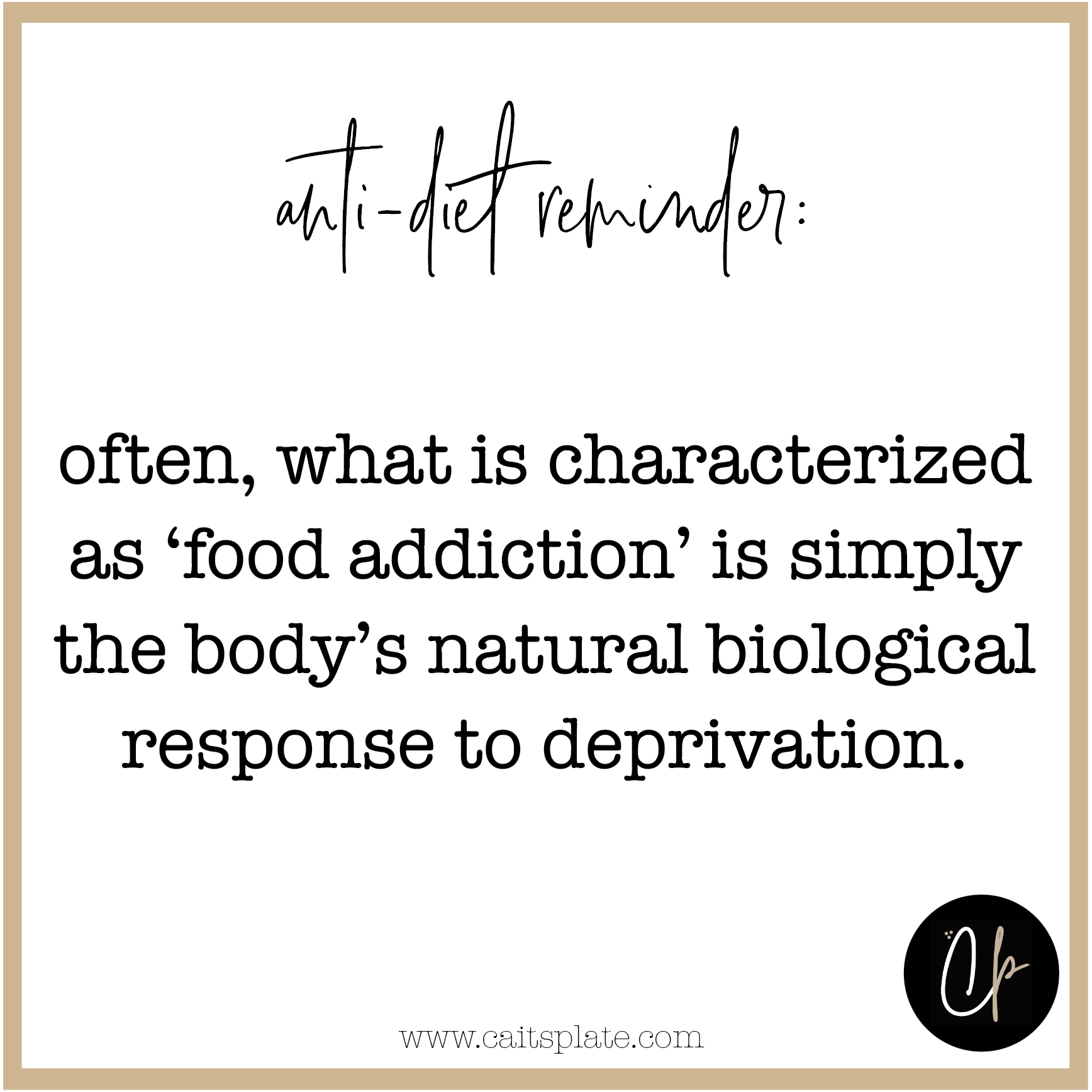
There are a lot of things at play when we experience feelings of out of control eating or food addiction. Deprivation backlash plays a role, the diet-rebound cycle has a hand in it as do our biological instincts for survival.
The pleasure of eating food is felt not just by our tastebuds, but biologically as well. When we eat, reward centers in our brain naturally light up.
This ability to derive pleasure from food is an innate survival mechanism for humans. It is a way to ensure that we continue to seek food in order to sustain life.
When we engage in restriction, it intensifies that reward response in our brains – meaning the signals both leading up to eating and when we finally eat the food we’d been avoiding, are even stronger.
The potency of these signals can make you feel as though you’re addicted to the food you’re eating (this message is also constantly pushed by diet culture, making this an even more inevitable conclusion to draw when experiencing this feeling). It can feel almost as if you’ve entered a blackout state – you don’t feel fully connected to the experience and the eating process can feel out of your control.
Researchers and media often like to ‘prove’ food addiction exists by drawing a correlation between it and substance abuse. They say that the same pleasure centers in the brain light up in individuals with ‘food addiction’ when eating certain foods as in those who suffer from substance abuse when engaging with that substance.
This is not a valid theory (for many reasons, see below for a very abbreviated explanation as to why not*), however it does help to describe how intense those signals can feel when we eat foods we’ve been avoiding , and why the experience can often feel out of control.
It’s important, however, to make the distinction that the feeling described above is a natural biological response resulting from restriction, rather than addiction. With substance addiction, that feeling results from the substance itself. With food, that feeling is a result of your relationship with the food.
Reflect a time when you avoided certain foods (whether for a diet, under the guise of health, because it was too expensive, etc.). Did you find your thoughts about and cravings for those foods intensified during avoidance? Did you find yourself in a situation where you eventually ate those foods and felt out of control when doing so?
Learn to recognize these patterns of restriction followed by out of control feelings around certain foods and use it to remind yourself that it is our body’s natural reaction to restriction, rather than addiction, that is causing this circumstance.
Making peace with food requires allowance of all foods (barring any life-threatening allergies) in whatever amount feels good. It is exposure and habituation, not restriction, that will ultimately free you from feelings of food addiction and out of control eating.
* For those whose curiosity is piqued by this, suffice it to say that food is not addictive in the same way that substances are addictive. Studies and articles that draw this comparison are ignoring the fact that subjects with food ‘addiction’ experience this addiction-like reaction to foods in the context of restriction. So, it is the restriction of the foods, not addiction to the foods, that causes this similar response.
GET MORE ANTI-DIET REMINDERS HERE.
2
Leave a Reply